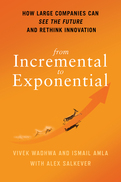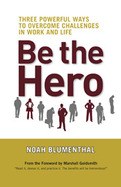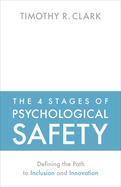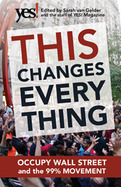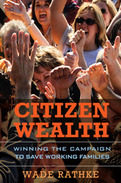—Satya Nadella, CEO, Microsoft
Over and over, we see big legacy businesses getting beaten to the punch by energetic little start-ups. It seems like innovation can come from only the bottom up or from the outside in. But tech experts Vivek Wadwha and Ismail Amla are here to tell you that “big equals slow and stodgy” is a myth. Based on decades of experience working with both the world's leading brands and disruptive start-ups, this book explores the opportunity legacy companies have to create new markets, supercharge growth, and remake their businesses by combining the mindset and tool belt of start-ups with the benefits of incumbency: boatloads of customer data, decades of brand equity, robust distribution channels, enormous financial assets, and more.
Wadhwa and Amla go deeply into why the pace and dynamics of innovation have changed so dramatically in recent years and show how companies can overcome obstacles like the Eight Deadly Sins of Stasis. Equally important, they provide a playbook on how to use their insights in your own company, team, or career. This fast-paced, anecdote-rich story rethinks modern innovation—a book every manager, executive, and ambitious employee will want to read.
2024
After experiencing two rare heart attacks at the age of 33—and a third a decade later, DeMarco knows trauma intimately. Trauma breaks your relationship with time by upending your expectations, fracturing your memories and identity, and destroying your innocence.
With poignant wisdom and refreshing insight DeMarco explodes traditional myths of resilience and shows what it takes to thrive through any of life's challenges. DeMarco situates meaningful challenge and loss specifically in the context of "lost innocence," and challenges common notions that we can think our way out of despair and back to a "normal" happy life when the unimaginable shatters it.
Leveraging advances in emotion science, somatic psychology, neuroscience, and trauma, Holding Onto Air brings the body and spirit into the solution, as much as the mind, and so presents a truly integrated, "whole person" approach to recovering from lost innocence and building resilience. It also makes spirit accessible for anyone of any background or belief—or no aligned belief.
More than a rudimentary map for navigating grief and loss' rocky terrain (with tired tropes and shop-worn strategies), DeMarco offers a unique and trusted guide for an arduous journey every human being will have to face—the realization of evil, pain, or mortality that occurs after a person experiences trauma.
2009
Noah Blumenthal offers a universally accessible technique for overcoming inertia and despair and becoming consistently positive, productive, and happy at home and on the job.
- Reveals that each of us has the power to choose whether to be a passive, put-upon victim or a hero in control of their life and career
- Uses the accessible and popular parable format to teach important life-lessons
- Includes an extensive section of tools, exercises and other resources
A victim mentality is rampant in organizations today. My boss is a jerk. This is a dead-end job. I can't change anything here. The result is lost productivity, lack of creativity, departmental in-fighting-a toxic atmosphere.
But nobody has to be a victim. The truth is people make themselves victims. It's just an interpretation of reality, a story they tell themselves. People can choose a different story. They can stop seeing themselves as helpless victims and instead discover how to put themselves in charge. Anyone can choose to Be the Hero.
Appropriately enough, executive coach and corporate speaker Noah Blumenthal uses a story-of Jeff, a young executive facing what seem to him insurmountable challenges-to show readers how to gain greater success and satisfaction in their lives by transforming the ways they view others, their own situation, and themselves. And he includes a plethora of practical resources that will teach readers how to consistently shift their perspective from victim to hero.
This is not seeing the world through rose-colored glasses-but it is seeing through a new lens. One that helps us look beneath the superficial surface of our unhappiness to discover why people act in ways that frustrate us and do something about it. That finds sources of strength in our lives, even in the toughest circumstances. And that gives us the power to change.
Victim stories limit us, sap our energy, stifle and frustrate us. Hero stories open up new possibilities, spur us to action. In Be the Hero, Noah Blumenthal offers a universally accessible technique for overcoming inertia and despair and becoming consistently positive, productive, and happy, at home and on the job.
This book is the first practical, hands-on guide that shows how leaders can build psychological safety in their organizations, creating an environment where employees feel included, fully engaged, and encouraged to contribute their best efforts and ideas.
Fear has a profoundly negative impact on engagement, learning efficacy, productivity, and innovation, but until now there has been a lack of practical information on how to make employees feel safe about speaking up and contributing. Timothy Clark, a social scientist and an organizational consultant, provides a framework to move people through successive stages of psychological safety. The first stage is member safety-the team accepts you and grants you shared identity. Learner safety, the second stage, indicates that you feel safe to ask questions, experiment, and even make mistakes. Next is the third stage of contributor safety, where you feel comfortable participating as an active and full-fledged member of the team. Finally, the fourth stage of challenger safety allows you to take on the status quo without repercussion, reprisal, or the risk of tarnishing your personal standing and reputation. This is a blueprint for how any leader can build positive, supportive, and encouraging cultures in any setting.
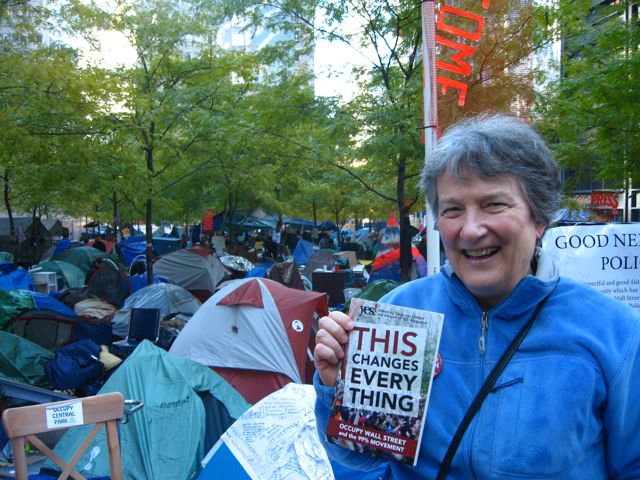
Fran Korten in front of Zuccotti Park in New York City with This Changes Everything
2009
• By the founder of ACORN, the nation’s largest grassroots community organization of low- and moderate-income people
• Goes beyond piecemeal solutions to present a holistic strategy for helping working people establish a solid economic foundation
• Draws on lessons learned from Rathke’s 40 years in the field
America’s safety net is torn and tattered. Income inequality continues to grow—the gap between rich and poor has expanded fivefold in the last 25 years. For millions of working families achieving basic middle class comforts has begun to seem as distant a dream as winning the lottery. What is needed, and what veteran organizer and ACORN founder Wade Rathke provides in this hard-hitting new book, is a comprehensive grassroots strategy to create what he calls citizen wealth: an enduring foundation on which working people can build a future that extends beyond paying next month’s rent.
Rathke shares breakthrough strategies that have enabled ACORN and other organizations help people secure the basics of citizen wealth—a house and a decent income—offering from-the-trenches advice on mounting successful living wage campaigns, battling unscrupulous and predatory lending practices, and developing new forms of worker organizations to protect wages and benefits. The anti-poverty programs still out there can provide critical support for citizen wealth-building efforts, but they’re woefully underutilized. Rathke shows how to cut through government indifference and bureaucratic obstacles to provide those in need with access to these vital resources.
But community organizations can’t do it alone. Rathke describes ACORN partnerships with HSBC Bank and H & R Block that helped these businesses see building citizen wealth as a new market opportunity—a win for them and for the people they once exploited. And he looks at other examples of strange bedfellows in the fight for citizen wealth, including Citibank, once the target of massive protests by ACORN and now, working with them, a major investor in working class communities.
“We need to create a national economic and political consensus that increasing family income, wealth and assets is not `welfare’ or an entitlement ‘give-away” program but an investment in the public good and well-being.” Rathke writes. Based on forty years of hard-won experience, Wade Rathke offers a new blueprint for helping millions to achieve the American Dream.


